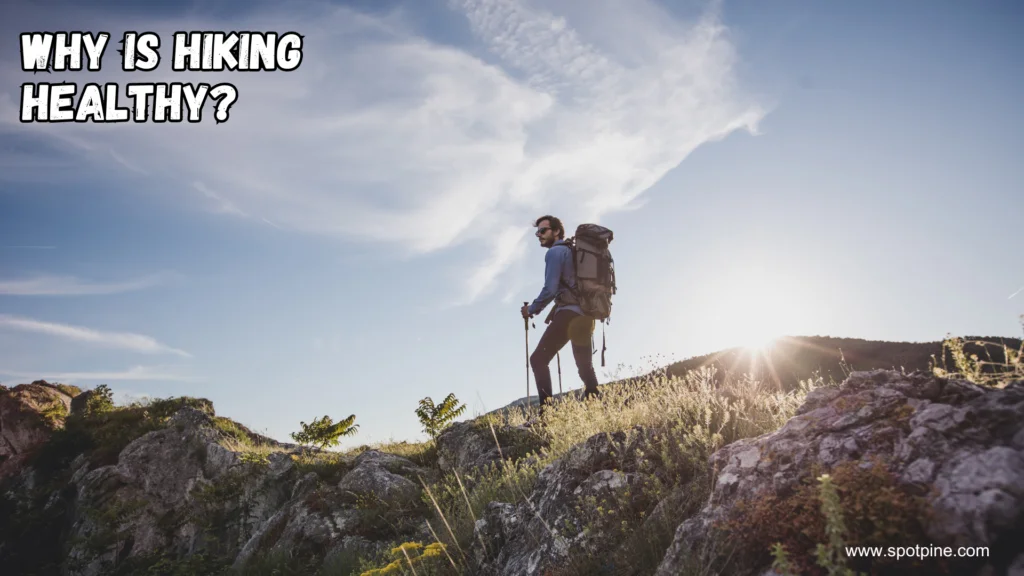As people become more conscious of the importance of leading a healthy lifestyle, hiking has gained immense popularity as a form of exercise. Not only does hiking offer numerous physical benefits, but it also provides a range of mental and emotional advantages. Let’s explore why hiking is considered one of the healthiest activities you can engage in.
Physical Benefits of Hiking
Hiking is a fantastic way to improve your overall physical well-being. Here are some of the ways hiking can benefit your body:
| Physical Benefit | Description |
| Cardiovascular Health | Hiking increases your heart rate, strengthening your heart and improving blood circulation. |
| Weight Loss | Hiking burns calories and helps with weight management. It is an effective activity for those looking to shed extra pounds. |
| Muscle Toning | Walking uphill, navigating through uneven terrains, and carrying a backpack all work your muscles, resulting in overall body toning. |
| Bone Density | Hiking is a weight-bearing exercise that helps increase bone density, reducing the risk of osteoporosis and improving bone health. |
| Joint Health | The low impact nature of hiking makes it a great exercise for improving joint mobility and reducing the risk of arthritis. |

Mental and Emotional Benefits of Hiking
Hiking provides more than just physical benefits. It can also have a positive impact on your mental and emotional well-being. Check out some of the ways hiking can boost your mental health:
- Stress Relief: Spending time outdoors, surrounded by nature, promotes relaxation and reduces stress levels.
- Improved Mood: Hiking releases endorphins, also known as “feel-good” hormones, that improve mood and enhance overall mental well-being.
- Enhanced Cognitive Function: Spending time in nature has been linked to improved concentration, creativity, and memory.
- Decreased Anxiety and Depression: Studies have shown that spending time in green spaces can reduce symptoms of anxiety and depression.
- Increased Self-Esteem: Accomplishing hiking goals and challenging yourself physically can boost self-confidence and improve self-esteem.
Tips for a Successful Hiking Experience
If you’re new to hiking or looking to enhance your hiking experience, consider the following tips:
- Start Slow: Begin with shorter hikes on well-marked trails to build stamina and gradually increase the difficulty level.
- Invest in Proper Footwear: Choose comfortable, supportive shoes or hiking boots to protect your feet and ankles.
- Stay Hydrated: Carry enough water to keep yourself hydrated throughout the hike.
- Pack Essentials: Always carry essential items like a map, compass, first aid kit, and snacks for energy.
- Respect Nature: Leave no trace and maintain the beauty of nature by following proper hiking etiquette.
- Hike with Others: Consider hiking with a partner or in a group for safety and shared enjoyment.
FAQs Of Why Is Hiking Healthy?
What Are The Benefits Of Hiking For Beginners?
Hiking boosts physical fitness, mental well-being, and offers a scenic, refreshing getaway.
How Often Should One Go Hiking To See Benefits?
Consistent hiking, ideally 2-3 times a week, can yield improved fitness and mood.
Can Hiking Help In Reducing Stress Levels?
Yes, hiking reduces stress by enabling one to connect with nature and relax.
Is Hiking Suitable For All Age Groups?
Hiking is excellent for all age groups as it can be tailored to different fitness levels.
Conclusion
Hiking is not just a physical activity; it is a holistic experience that benefits our body, mind, and soul. From cardiovascular health to reduced stress levels, hiking offers a plethora of advantages that can significantly improve your overall well-being. So lace up your hiking boots, explore nature, and reap the countless benefits of hiking!



